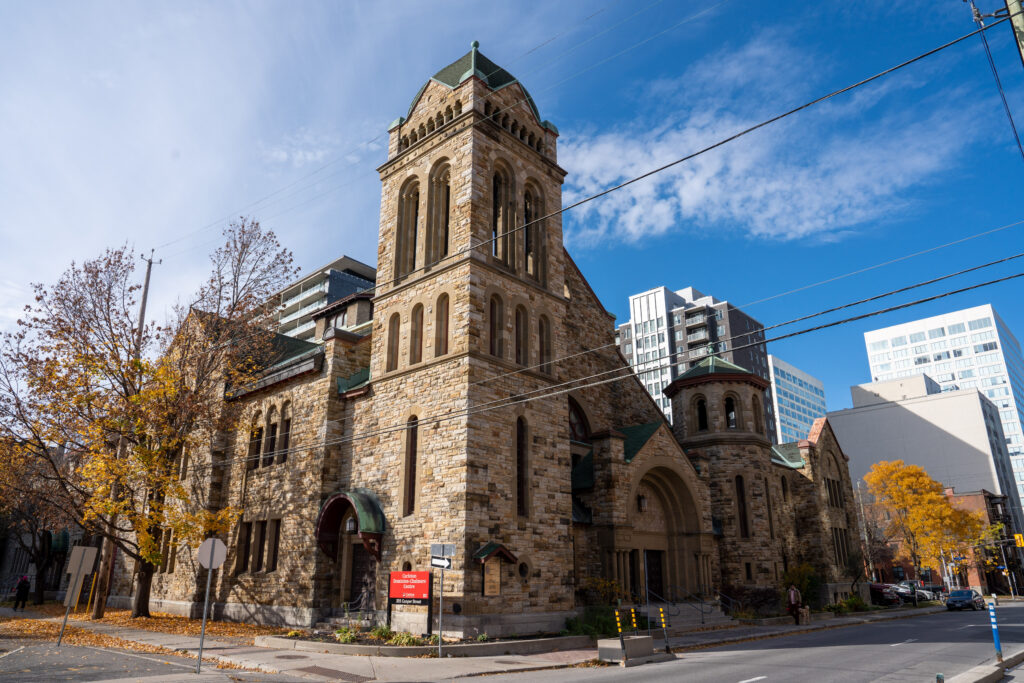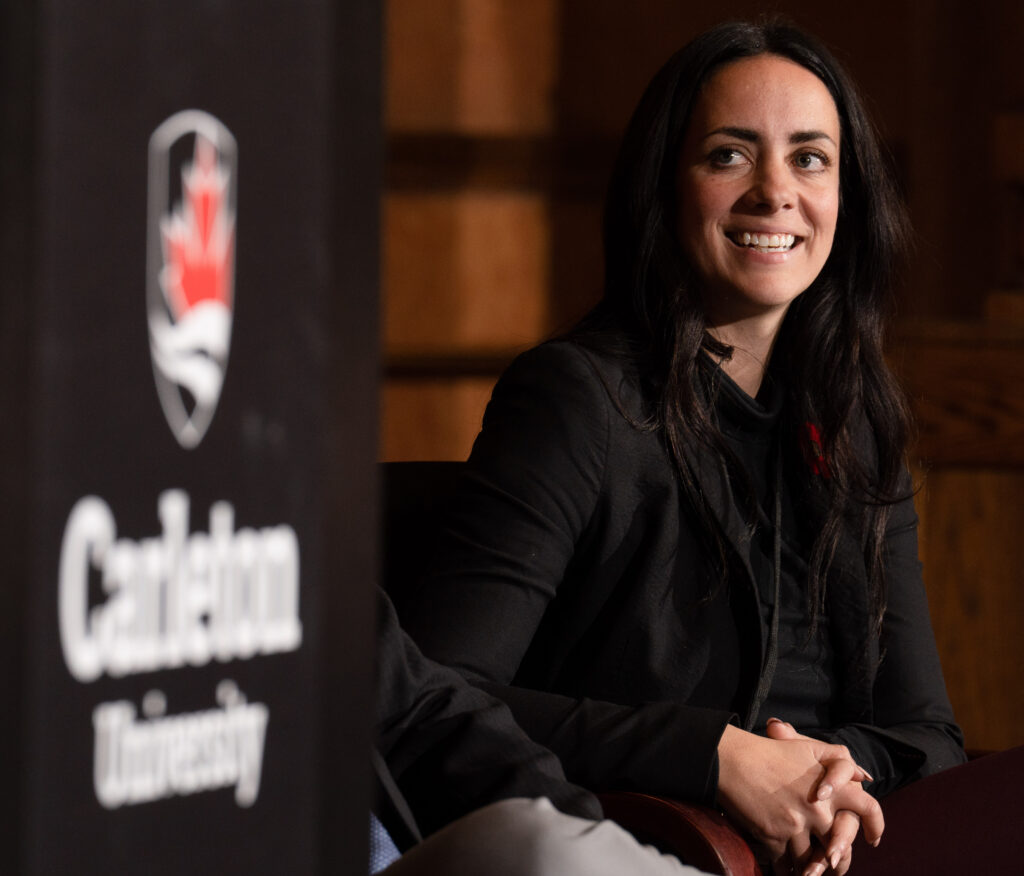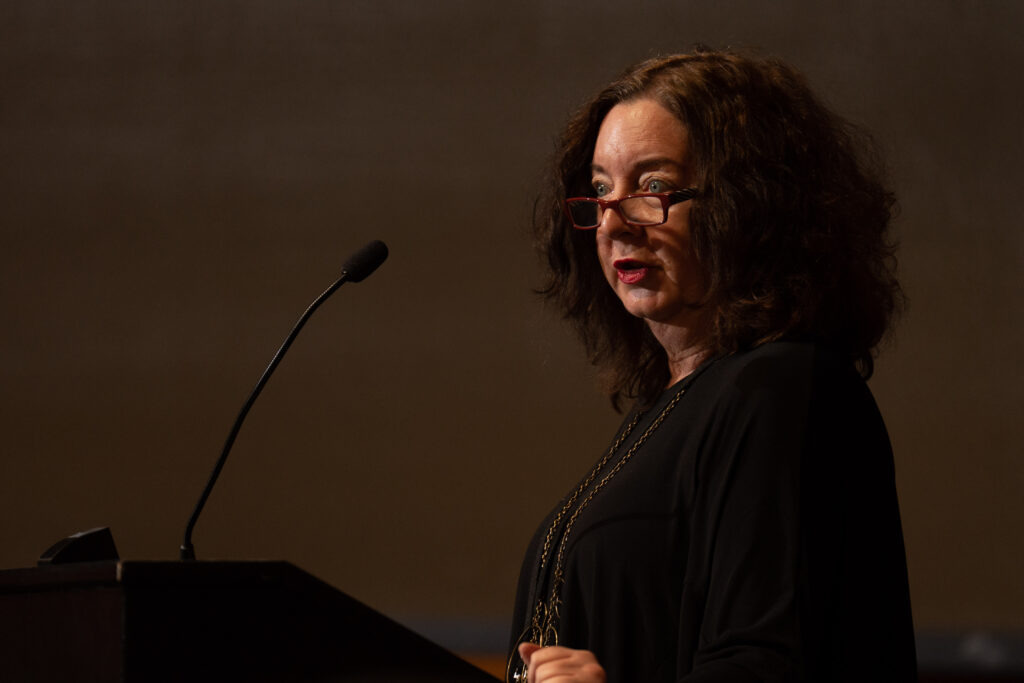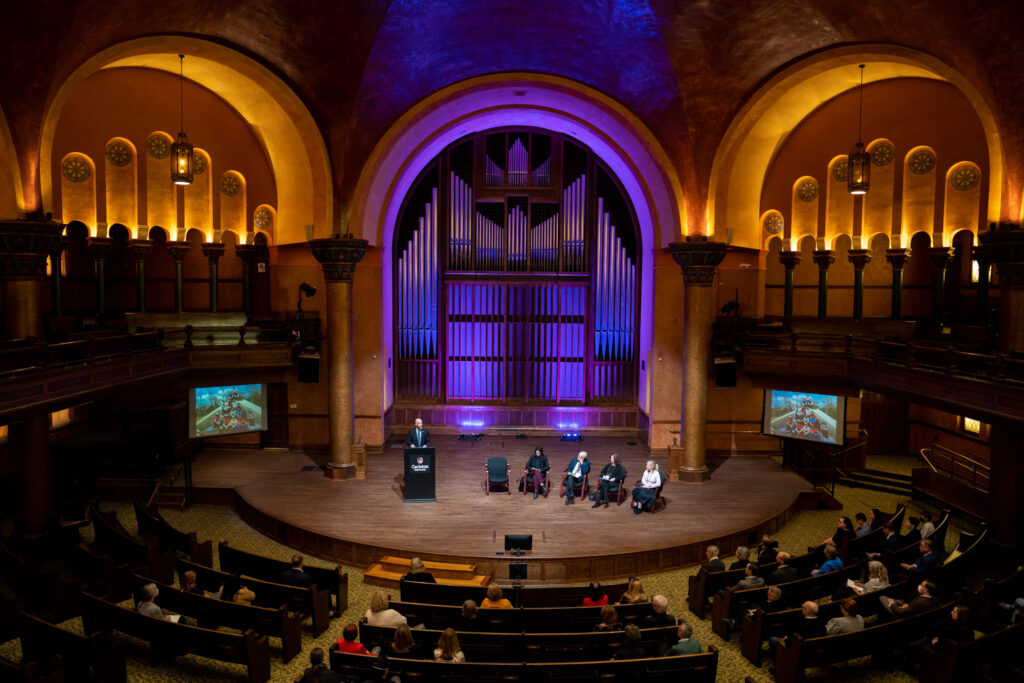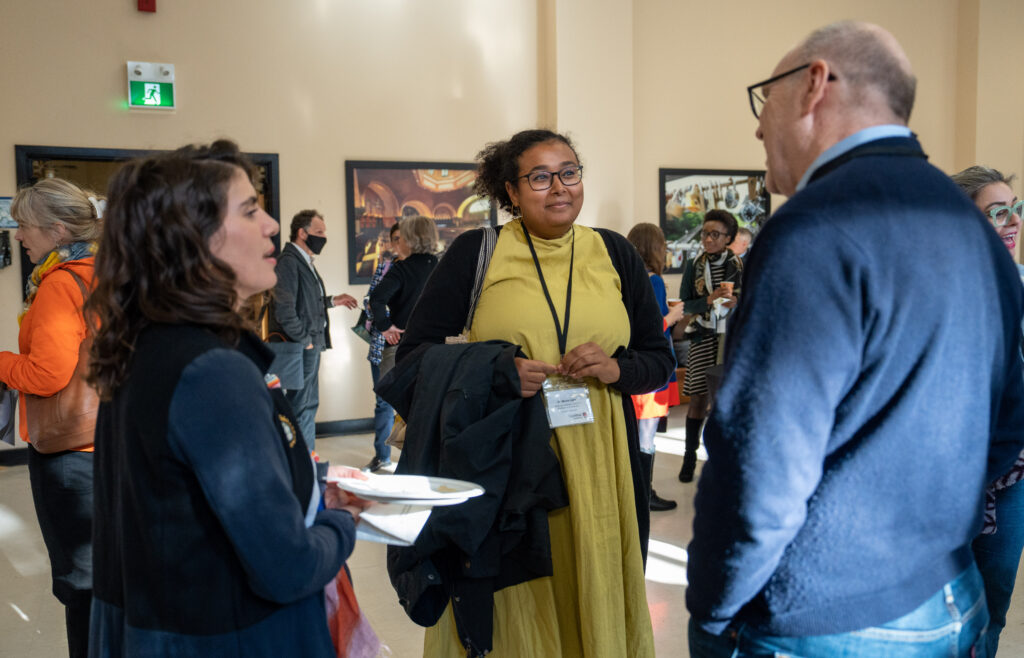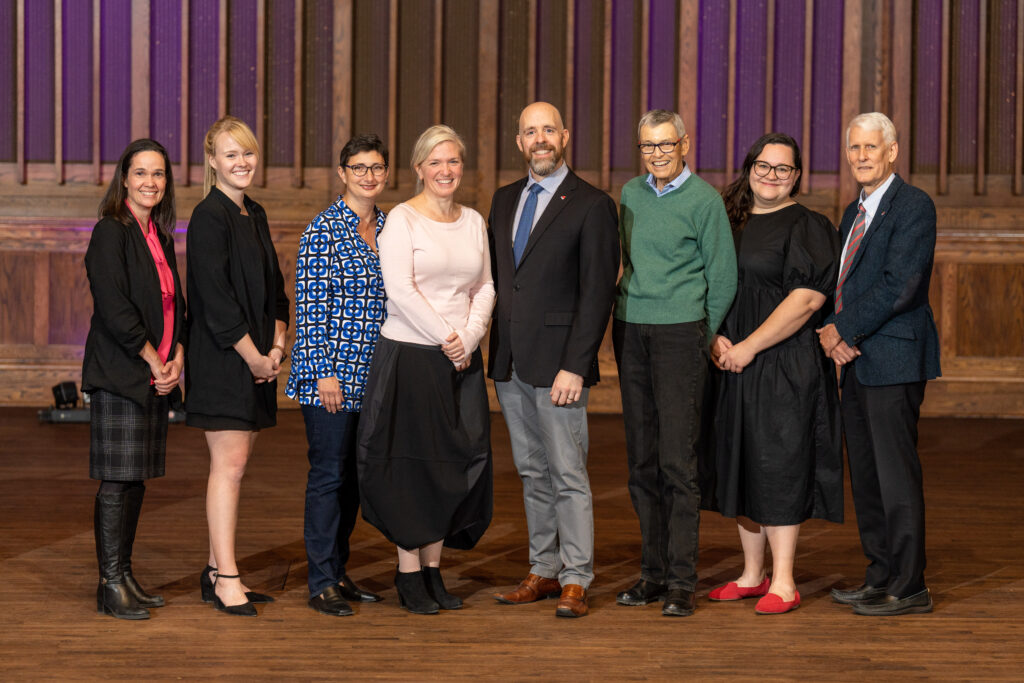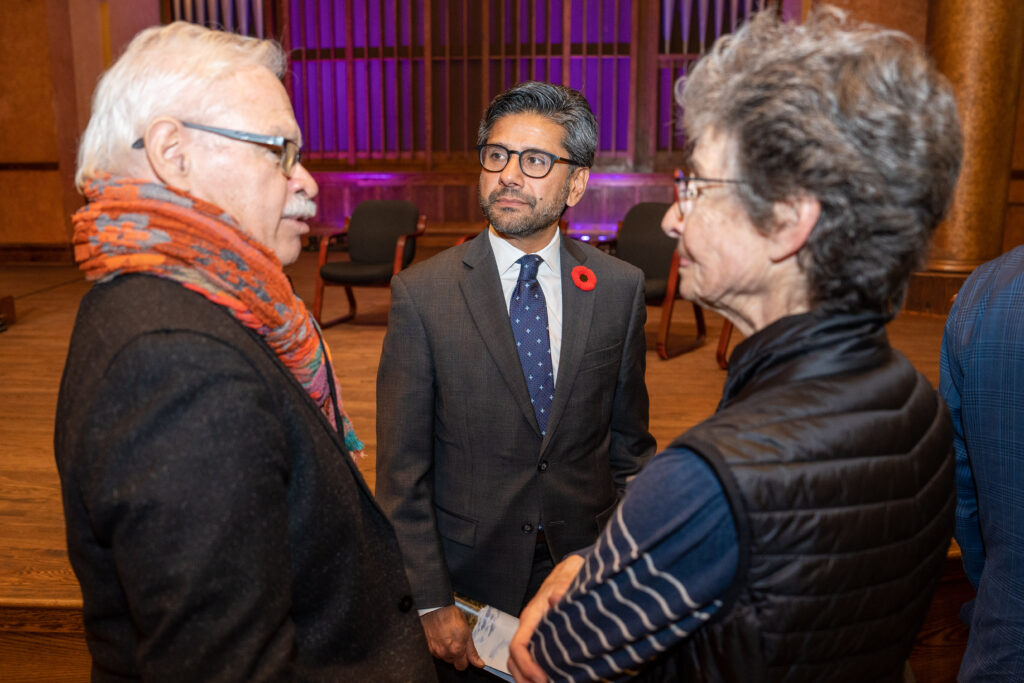Carleton Launches Community Engagement Strategy
By Amanda Dobbie and Jane van den Dries
Photos by Darren Brown
__________________________
Carleton’s long tradition of honouring and engaging its communities was a central theme of last week’s event that saw the unveiling of the university’s inaugural Strategic Plan for Community Engagement (SP4CE).
The launch event marked a significant moment for Carleton, bringing the university another step closer to implementing the “Serve Ottawa, Serve the World” strategic direction outlined in its overarching Strategic Integrated Plan.
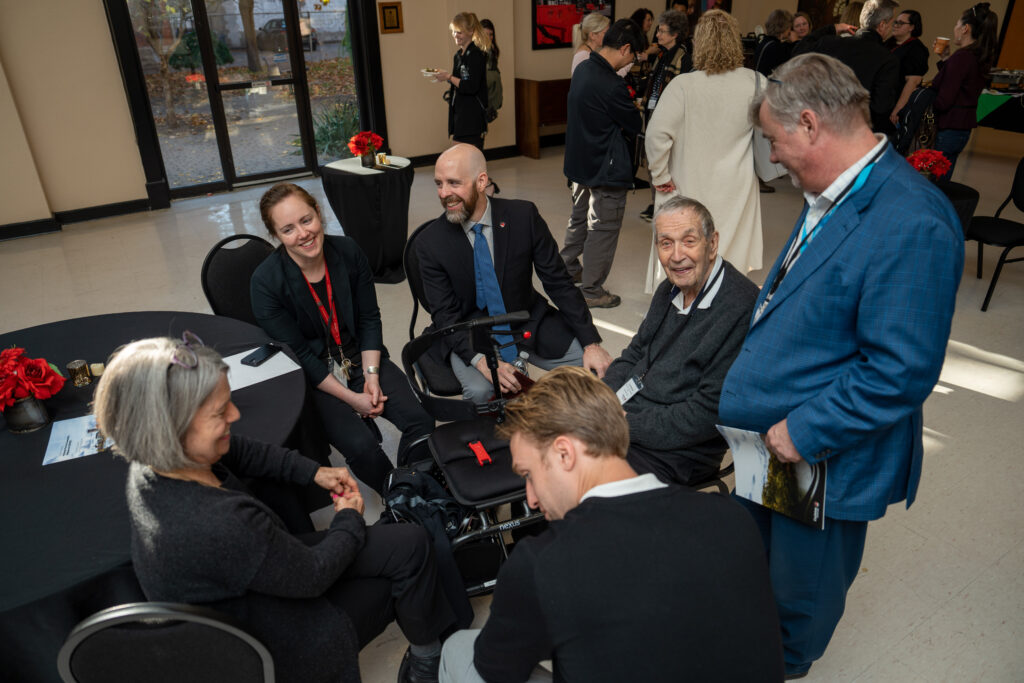
Hosted by the Centre for Community Engagement on Oct. 28, the celebration included over 100 community partners, students, staff and faculty who gathered at the Carleton Dominion-Chalmers Centre, one of Carleton’s satellite locations embedded in the heart of Ottawa’s downtown core.
“Community engagement is at the root of all activities at Carleton Dominion-Chalmers Centre, and it was very meaningful to witness the launch of Carleton’s first Strategic Plan for Community Engagement here at CDCC where we are so fortunate to share ongoing and evolving time and space with community collaborators.”
Mara Brown, Director, Carleton Dominion-Chalmers Centre
While the plan may be new, Carleton’s commitment to community engagement can be traced back to 1942 as part of its history when residents and local leaders recognized that the young people of Ottawa would need and deserve a new option for higher education.
“Eighty years later, we honour these roots as part of our history,” said Chantal Trudel, director of Carleton’s Centre for Community Engagement, who served as one of the co-chairs who led the development of the plan. “The importance of engaging with communities is even more relevant today as we face increasing complexity related to food and water security, livelihood, health, extreme events, individual and cultural identity, and quality of all life.”
Trudel was joined by two collaborative co-chairs, Katherine Graham, Dean Emerita of the Faculty of Public Affairs, and Nancy Arnold, director, Office of Quality Initiatives, who led a broad task force that guided the process. The task force built on groundwork initiated by Karen Schwartz and Lorraine Dyke, who both served as co-chairs before moving into other roles in 2021.
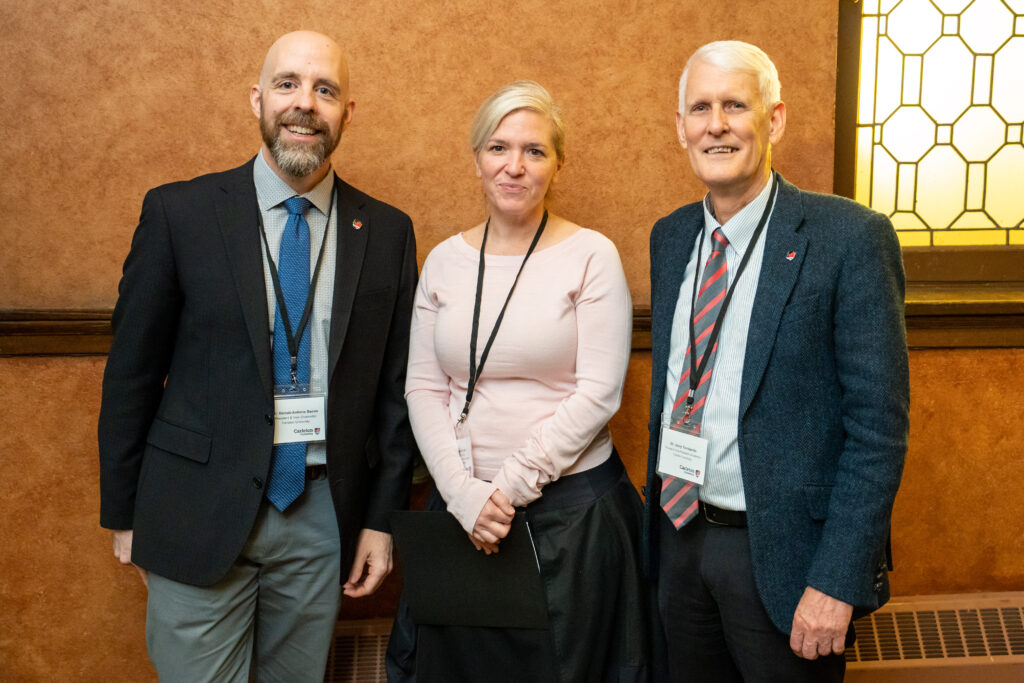
“This plan invites us each as individuals, teams and diverse communities to come together and take actions that move us toward the impact we hope to see in the world, not just for Carleton’s future, but also the future of our communities and our society,” said President Benoit-Antoine Bacon. “I invite you all to read our new Strategic Plan for Community Engagement and consider the ways in which we can take action to help implement the plan’s priorities.”
Trudel and Bacon were joined on stage by guest speakers Councillor Catherine Kitts, who is a Carleton graduate and former staff member; Kelly McGahey, Director of the Employment Accessibility Resource Network; as well as Provost and Vice-President (Academic) Jerry Tomberlin.
Representing a year-long consultative process that engaged approximately 600 members of the internal Carleton community—including students, staff, faculty, Senate and the Board of Governors—and external community partners, the plan outlines five key priorities that will guide the university’s collective efforts around community engagement:
- Foster and maintain existing relationships, while building new ones for positive impact;
- Develop systems and services to support our relationships;
- Focus on creative and innovative community engagement that is sustainable;
- Improve communications across communities to support connection; and
- Provide greater recognition of collective efforts that exemplify community engagement.
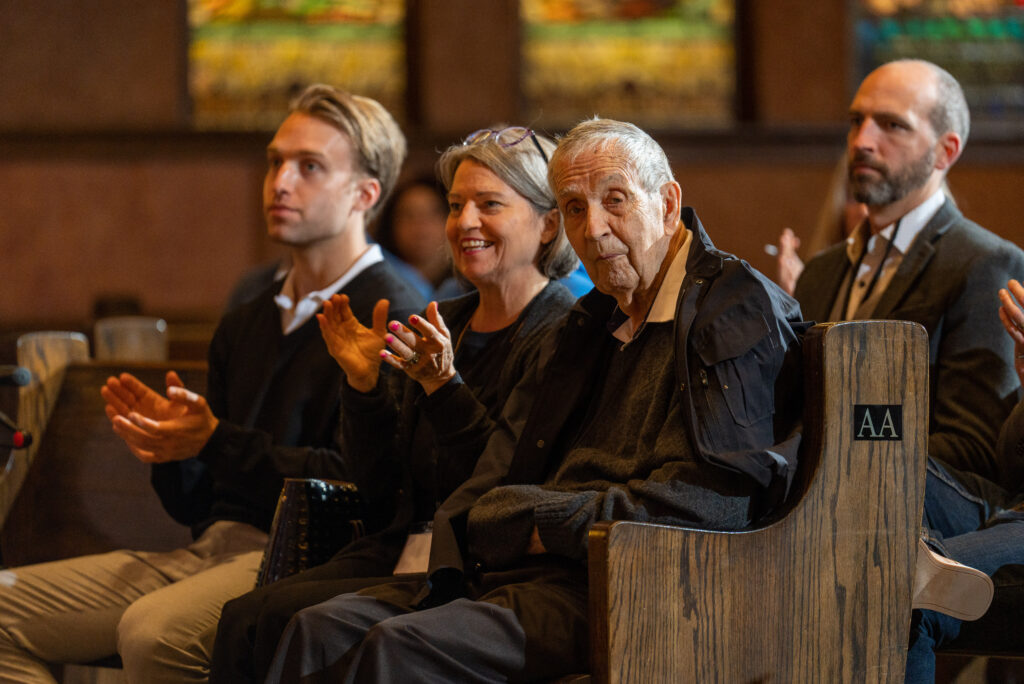
The Centre for Community Engagement will serve as a focal point for strategically aligning community engagement across the university and will collaborate with key partners to lead the plan’s implementation.
“Not only do we have the chance to expand our current community engagement efforts here in Ottawa, but we also have the prospect of generating larger ripples as we execute the actions this plan stewards us toward,” said Tomberlin.
The strategic plan outlines several activities that will be undertaken to make progress on the five priorities. It also notably specifies that the development of an Indigenous-specific community engagement protocol will be part of this strategy. The Centre for Indigenous Support and Community Engagement, in partnership with Indigenous communities and the Centre for Community Engagement, will begin this important work in the winter of 2023.
The Strategic Plan for Community Engagement (SP4CE) is now available on the Centre for Community Engagement website.
